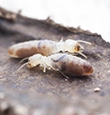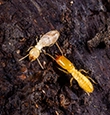Termite Facts & Information
Hawx is always reliable. Always innovative.
Get $350 Off Termite Service
20,000+ 5-STAR REVIEWS
“Connors Trader went the extra mile to make sure he listened to our needs regarding the ant problem we had.”
- Larry
“He sprayed indoors and out, swept my eaves for spider webs and took care of a couple of wasp nests.”
- Rick
“He even sprayed on my deck, which no one else has done.”
- Sue
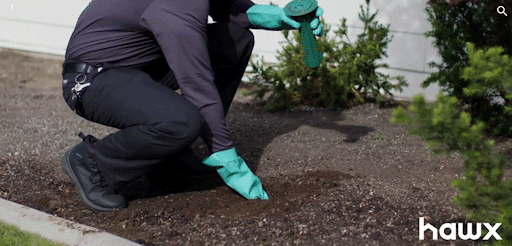
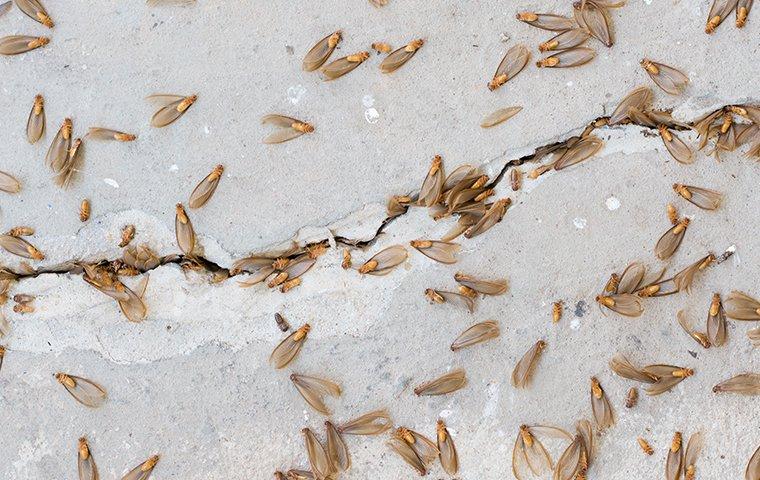
How to Identify Termites
Different types of termites vary in where they live and how they feed, but all of them can spell trouble for your home.
Subterranean termites thrive beneath the soil and build mud tubes to reach wooden structures above ground. Drywood termites invade furniture, walls, and attic beams without even needing contact with the soil. Formosan termites—sometimes called “super termites”—form extensive underground colonies and can chew through wood, plastic, and even thin metal. Dampwood termites zero in on moist or decaying wood, and conehead termites forage across open ground much like ants, quickly causing rapid, widespread damage if left unchecked.While each species is distinct, there are a few traits that can help you spot them. Some subterranean and formosan termites have creamy-white wings with darker bodies, while drywood termites often have pale or light brown coloration. Soldier termites may show enlarged mandibles or differently colored heads. Swarmers often appear near windows and doors and will leave small piles of discarded wings.
If you spot any of these signs or see mysterious mud tubes along your foundation, you may have a termite colony on your hands.
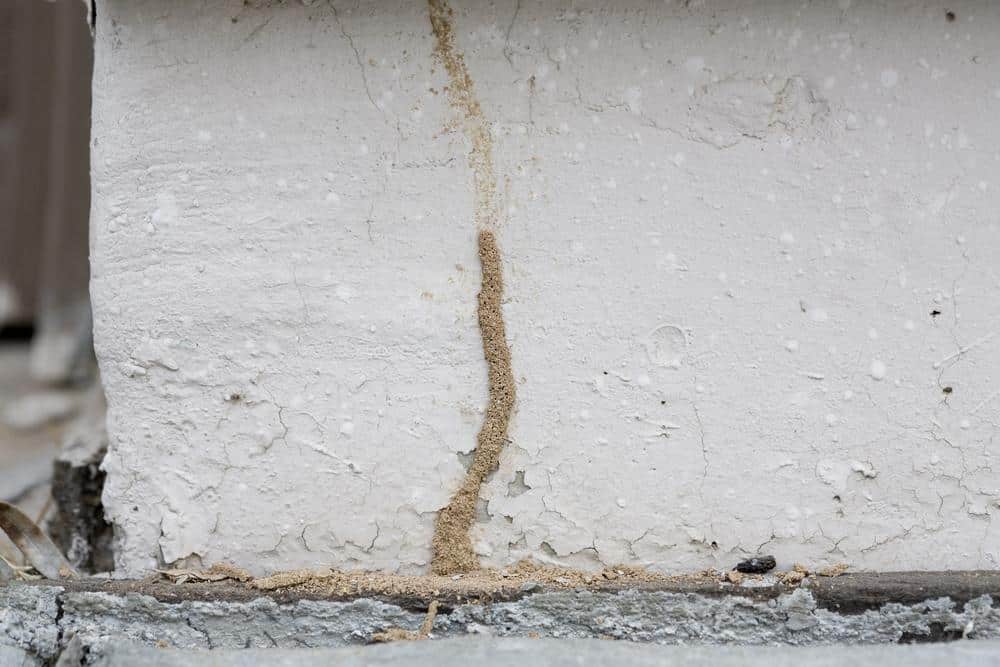

“A word on the types of termites in the US: Dampwood termites are commonly found in direct soil contact (think a fallen log), which allows the wood to become very moist. They’re typically not found in most residential settings.
Drywood termites infest one piece of wood at a time. It takes a very long time to develop a colony and do damage.
Subterranean termites cause billions of dollars of damage here in the US every year.
Formosan termites build very large colonies and are active when soil temps are warm enough, constantly scouting about for cellulose in the ground or where moisture shadows indicate a large tree has fallen (unfortunately, our homes cast large shadows and look like that!).
Call Hawx right away if you suspect termites on your property.”
Vice President of Technical & Training Services, Entomologist
Are Termites Always Bad?
While termites are infamous for destroying homes, most species play a key role in natural ecosystems by breaking down dead wood. Recycling these nutrients into the soil helps enrich it and supports healthy plant growth. The real problem happens when these wood-chomping insects head for the indoors and start feasting on structural beams and flooring instead of rotting logs out in the wild.
What Problems Do Termites Cause in a House?
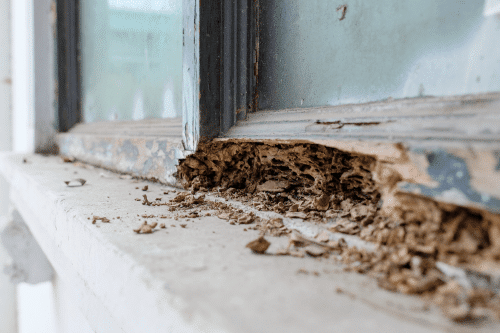
Signs of a Termite Infestation
How to Prevent Termites
Keeping termites at bay means cutting off what they love most: moisture and easy access to wood.
In regions where termites are particularly active, scheduling routine inspections is a smart move so you can catch problems before they escalate
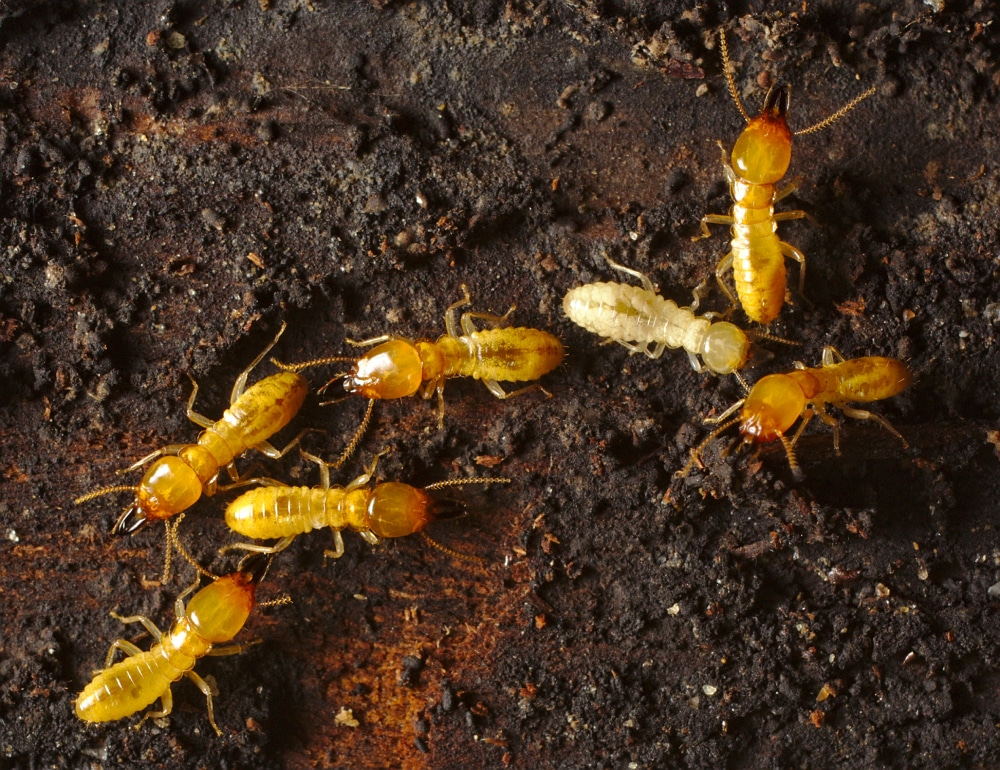
Let Hawx Handle Your Termite Problem
Although it’s sometimes possible to address termites on your own with DIY methods, getting rid of an infestation always calls for professional expertise. Hawx Pest Control has local experts who understand how each termite species behaves in your area. Our skilled technicians use specialized equipment and proven strategies to remove termites at their source and stop them from coming back.
If you suspect these silent destroyers are making themselves at home in your walls, we’re here to help. Contact Hawx Pest Control today for a thorough inspection and customized plan. We’ll handle your termite problem so you can protect what matters most and enjoy your home with peace of mind.
Termite Identification: What Are the Main Types of Household Termites?
Termites can vary widely from species to species, so it's important to know how to identify termites that typically invade homes.
Get $350 Off Termite Service
Read more about termites

How To Get Rid of Flying Termites
As if regular termites weren’t bad enough, flying termites can be a homeowner’s nightmare. A potential infestation of these winged termites could lead to significant

What is a Termite Inspection?
Are you worried about termites crashing your home sweet home? The signs of termites can be subtle – a tiny pile of wood dust here,

What Do Termites Look Like?
You’re sitting in your cozy living room, sipping on a hot cup of coffee, when you notice it. A minuscule, almost invisible creature crawling along


